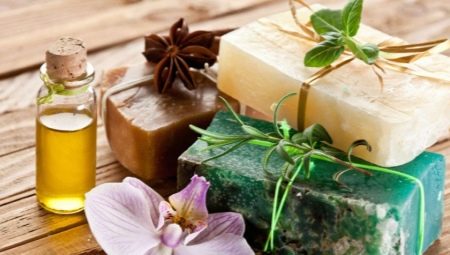Many ladies prefer to turn to home-made cosmetics made from environmentally friendly components. That is why housewives often resort to independent soap making. There are a lot of different recipes, thanks to which you can make not only useful, but also beautiful cosmetic products.
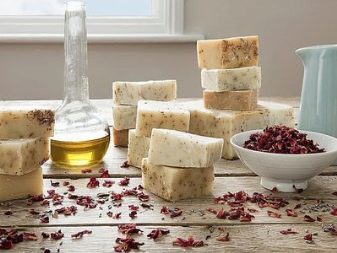
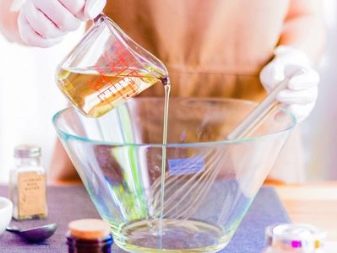
Why is homemade better than purchased?
Many people who have tried home soap in business are asking the main question: why is it better than what is sold in stores? First of all, it is necessary to highlight that the copies that lie on the shelves of various stores (and simple supermarkets, and many specialized retail outlets) do not contain ingredients of natural origin. In general, such products can hardly be called real soap, because true foods are rather saponified vegetable fats.
It's no secret that soap store briquettes often lead to excessive dryness of the skin. As a result, its surface may begin to peel off, and even an unpleasant itch appears. In some people, purchased soap provokes allergic reactions. If you make a safe and environmentally friendly soap at home, then here you can use components of exclusively natural origin.
It is possible to select ingredients that are ideal for a particular type of skin and do not cause any kind of allergic reaction.
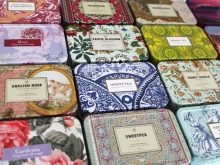

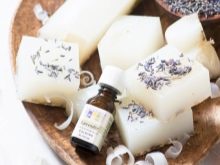
What ingredients are needed?
Different people make homemade soap differently.In this case, it is permissible to use both the existing foundation and try to prepare the product “from scratch”. If you prefer to use a ready-made base, you can take baby soap. It is advisable to take such options in which there are no fragrances. The composition of baby soap should be natural and safe. Some people in the case of a ready-made base want to save money and do not use purchased baby soap without chemicals, but digest remnants. Thus, the waste turns into a brand new briquette.
On sale, you can meet pre-prepared basics, which can be snow-white and colorless. In some stores, you can find special basics of organic origin, which are ideal for making homemade healthy soap. Most often, such products are found in specialized stores where everything you need for soap making is sold. Working with such basics is very easy and simple - for this you do not need to have special rich knowledge and experience, although certain skills here will be useful.
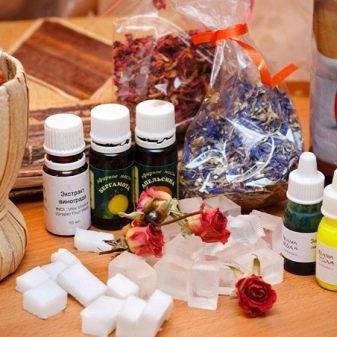
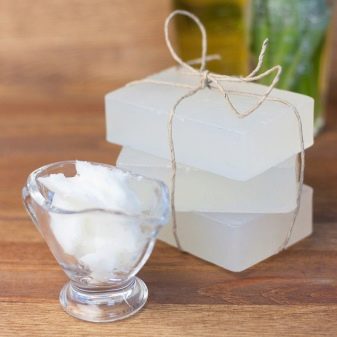
As for cooking home soap “from scratch”, then it will require relevant knowledge in the field of chemistry. This condition is explained by the fact that during the cooking of soap at home, you will have to work with an ingredient such as alkali. Before rushing to start independent soap making, you need to thoroughly and thoroughly familiarize yourself with the scheme of work with alkali.
It is preferable to make the entire list of ingredients that will be needed for making handmade soap. Most of them can be found in specialty stores. As for additional products, they are most often found in ordinary supermarkets, which are very numerous in every city. Some ingredients will be found at home for every person.
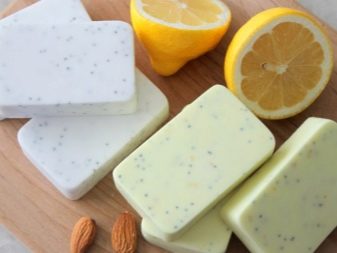
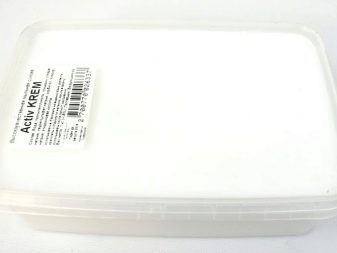
For the preparation of homemade soap, the following necessary components are used:
- finished base;
- base vegetable oils;
- coloring components;
- flavorings;
- essential oils;
- herbs, honey, coffee, petals of different colors - these components can be used at your discretion or not used at all;
- medical alcohol.
It is worth knowing that the soap bases produced by various companies vary in their cost, as well as in the degree of rigidity, the time required for solidification, and other basic parameters. On sale are the basics of organic origin, which are used to prepare 100% natural soap of high quality.
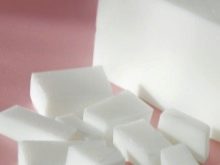
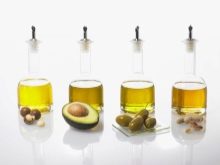
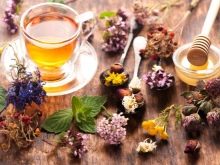
Base oils are used to enrich the product. It is these components that make home-made soap useful, enriching it with all the necessary positive qualities. Due to the base oils, the soap moisturizes and nourishes the skin without causing dryness. If these products are not in the content of the product, then its use will end with a noticeable dryness of the skin. In addition, the soap itself dries quickly and starts to peel. For the same purpose, these cosmetic accessories are complemented creams or body milk, cream or pasteurized milk.
You can not overdo it with components designed to moisturize the skin. So, if you planned to add fat milk to the composition of the soap, then its amount must necessarily be moderate. Soaps that contain too much fat will not foam well.
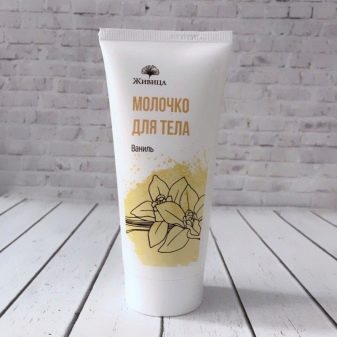
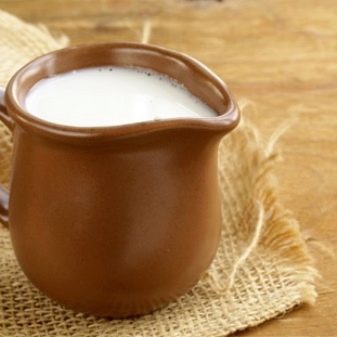
Painting components can be used both in dry and in liquid state. Of course, liquid dyes are considered the most convenient to use. This is due to the fact that with them it is much easier to measure the correct number of drops required. As for the dry coloring components, they must first be mixed with oils or a liquid and only then can it be introduced into the desired liquid mass.
As with fats, dyes should be added sparingly. This is due to the fact that the foam formed during the use of soap can also be multi-colored. For the first time, it is recommended to stock up on a small number of basic colors: red, yellow and blue. If you mix them, you can get almost any necessary shades.
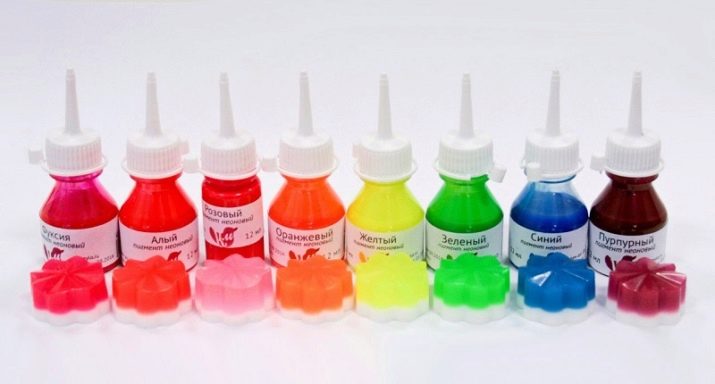
It is permissible to use dyes not only purchased, but also natural. The latter include a variety of spices such as turmeric or curry. It will be useful here and base oils, for example, sea buckthorn or pumpkin. Often add various fillers like colored clay, cocoa, ground coffee and other similar products. Of course, it is worthwhile to understand that with these components a truly saturated and catchy color is unlikely to be achieved, but in the end the soap will turn out to be safe and environmentally friendly.
Often, homemade soap is complemented by a variety of shiny pigments. Let us admit here another suitable decor. With such additions, the product is more interesting and original. It is such specimens that are often presented as lovely gifts and souvenirs.
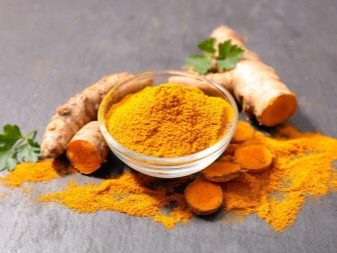
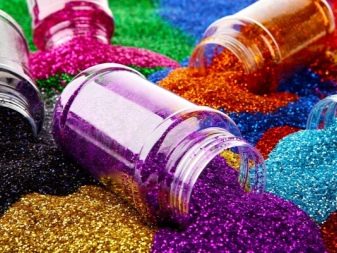
Soap without a pleasant aroma cannot be considered ready. In this case, they may be responsible for this function. special flavors. Some masters prefer to use special confectionery flavors, but you can search in retail outlets for other options - fragrances for home cosmetics.
Instead of artificial flavorings it is permissible to safely use essential oils, honey, coffee, chocolate and other similar ingredients. To give the soap a scent Petals of flowers, various herbs or zest are suitable. The main disadvantage of essential oils is the fact that they often erode soon. Usually they are made at the very end.
Very often, an ingredient such as alcohol. Many people are wondering why it is needed and whether it will spoil the aroma of the future product. Using alcohol, all air bubbles are removed from the soap., as well as layers are connected in layered colorful versions of the product. For this purpose, alcohol must be poured into a small spray bottle and sprinkled on the surface of the soap.
Usually, this ingredient does not affect its aromatic characteristics.
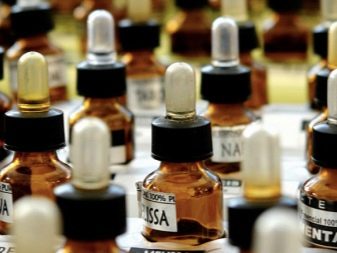
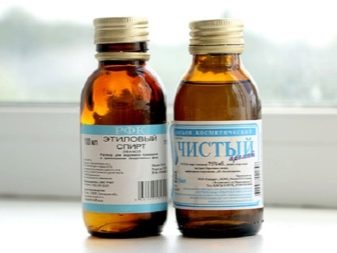
So that the homemade soap has acquired abilities like scrubbing, anti-cellulite properties and smoothing wrinkles, it is permissible to introduce various kinds of suitable fillers into it. Most often used as these components ground coffee, powder made from nutshells, clay, oat flour, ground sea salt etc. All these elements can be called additional caring components that can make the product useful and effective in use.
It is not recommended in this case to resort to the introduction of such components as berries, fruits, cucumbers, ginger root. The listed additives will inevitably begin to rot soon, which will render the "ultra-useful" and aromatic soap unusable. Instead of these components it is better to use dried flowers, petals, ginger powder or dried fruits. Of course, every person who is keen on soap making has his own list of necessary ingredients. Here are the main components that are used most often without harm to one’s own health.
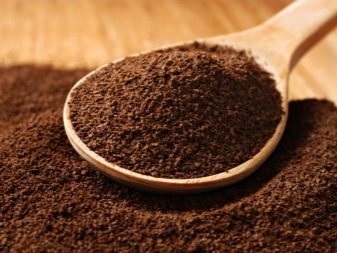
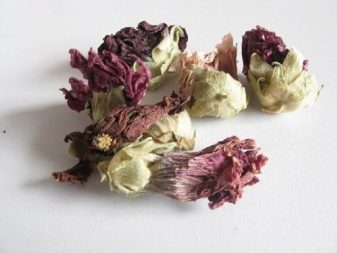
If we are talking about boiling soap “from scratch” (without a ready-made base), then the introduction of the following necessary ingredients will be required:
- alkalis;
- special oils necessary for saponification;
- liquid components: water, milk, composition on herbs.
To prepare high-quality solid soap, special caustic soda is used. It is sold in the form of flakes or small crystals.
As for alkali, this component is required in order to saponify fats.
When it comes to the necessary components for soap “from scratch”, here a very important role is played by overweight. Since fats become useless after reacting with alkali, it is advised to add some more oils at the end of the soap preparation procedure. This will be the same fat. Usually, expensive and valuable oils are used for it.
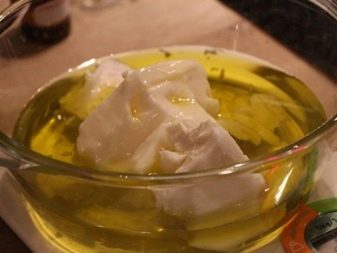
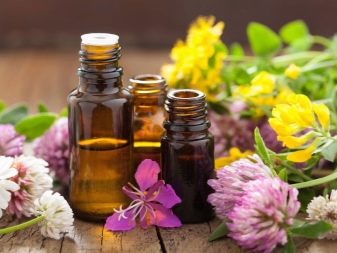
As for vegetable oils, it is permissible to introduce all kinds of them. Slightly less often, people resort to adding pork fat. Liquid is required here in order to dissolve such an aggressive component as alkali in advance and prepare it for the planned combination with fats. Applying medicinal decoctions made on herbs, it will turn out to make homemade soap more useful and environmentally friendly. In addition, due to these decoctions, the product will find a pleasant aroma and beautiful color.
In order to color the soap and give it a pleasant aroma, the following ingredients are usually used:
- sugar, fructose, honey;
- lactic, succinic, citric acid;
- lanolin;
- glycerol;
- oils for overweight;
- dyes;
- flavorings;
- various excipients of beneficial effect.
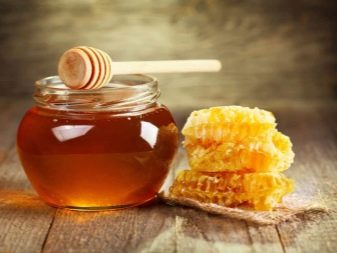
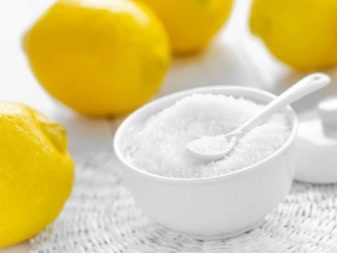
Tools and utensils
To properly prepare a safe and healthy homemade soap, it’s not enough to have only all the necessary ingredients in your arsenal. You must also prepare the required tools and convenient dishes. Consider what you need for cooking soap.
- Good heat resistant capacity. She will be needed to prepare a soap base. Subsequently, this capacity will need to be used only for this purpose.
- The pure form in which the soap will cool. You can use a plastic mold, but many craftsmen prefer to use silicone baking molds.
- Plastic measuring tanks will also be needed. In them, the necessary components will need to be mixed and their volume measured.
- Good immersion thermometer which is commonly used for jam.
- Precision electronic scales. It is acceptable to use kitchen appliances.
- Gas or electric stove.
- Brand new plastic spoonsas well as wooden spatulas.
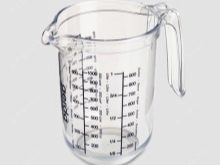
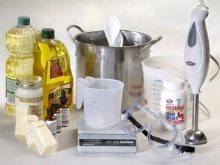
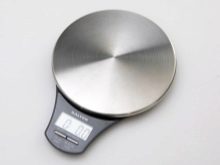
Also useful:
- scoop;
- sieve;
- syringe;
- sachets;
- paper towels;
- bathrobe;
- gloves.
It is important to keep in mind that all containers should be plastic, not metal (the exception is stainless steel), since essential oils can adversely affect such materials.
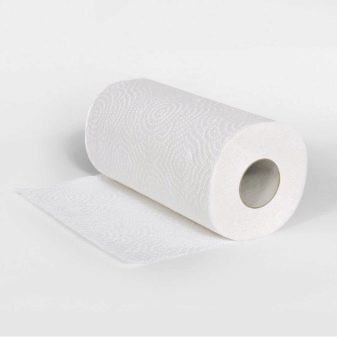
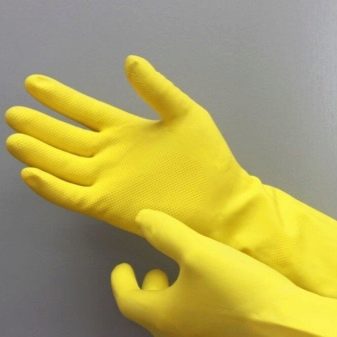
Safety precautions
If you decide to cook the soap yourself, you should consider that during such operations it is imperative to comply with safety rules. So, when cooking a product from fat and alkali, you can seriously harm your health if you do not know how to act correctly.
Let us analyze in more detail how to behave when working with alkali.
- Always use protective equipment, such as goggles, a respirator and rubber gloves. Do not neglect this item if you do not want to harm yourself.
- Wear closed clothing and shoes to the maximum. if you plan to work with alkali.
- All tools and containers, which you plan to use for cooking soap, should be used only for these purposes. In no case can you cook food in them.
- Carry out various alkali operations recommended in open air. If you do not have this opportunity, then it is advisable to open all the windows in the house and start the hood.
- While you are making soap with alkali, food should not be prepared in the kitchen. There should not be children and animals nearby.
- In contact with water the alkali is very hot. That is why it is so important to make sure that the water is as cold as possible, and even better - with ice cubes.
- When it comes to alkali, it is advisable to use special or glass containers.
- Consider another crucial point: alkaline solution is poured into liquid oils, and not vice versa. In addition, you will need to carefully strain the solution to prevent the ingress of whole soda crystals.
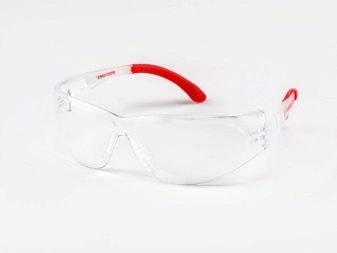
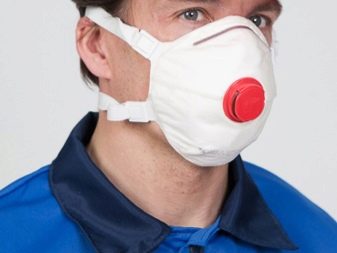
If you are preparing a simple soap using a water bath, then always make sure that no air bubbles form. To do this, resort to spraying the composition in molds with alcohol. But here it is important to observe safety precautions so as not to accidentally get burned by nearby trains.
While you are preparing eco-friendly and healthy soap at home, it is recommended to cover the surface around with unnecessary rags or newspaper leaflets. Otherwise, it will be very difficult to wipe away the soap spray.
You can’t do without the use of vinegar.
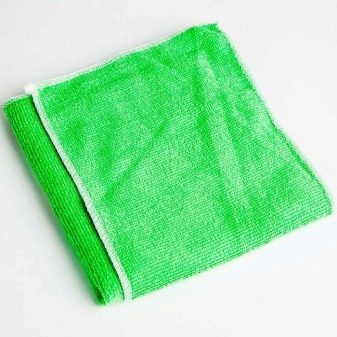
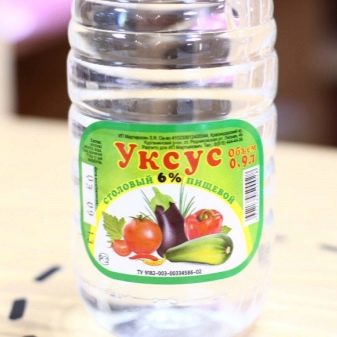
Manufacturing Recipes and Workshops
To make soap (even household) at home is not as difficult as it might seem at first glance. The main thing is to strictly follow the instructions, proceed carefully, step by step and comply with all necessary safety rules. If everything is done right and not in a hurry, then as a result, you can get excellent healthy products that will surpass the quality of conventional soap.
Many soap makers consider healthy olive soap to be their favorite. To prepare this wonderful product you need:
- 80 g of bee honey;
- 90 ml of olive oil;
- 320 g basis;
- 4 drops of a green coloring component;
- 10 g ground basil.
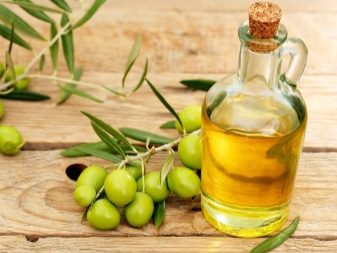
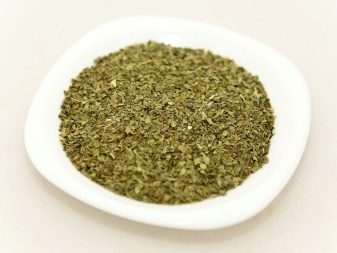
And now we’ll analyze it in stages, how to make this soap.
- In this case, it is advisable to use a steam bath. First, it will need to melt the base for the future soap.
- Now gently and gradually start adding all the necessary components, but not all at once, but in turn. All this time, the mass must be stirred without stopping.
- Distribute prepared compound by beautiful molds.
The result is a very useful soap that will effectively nourish the skin, making it not only clean, but also very soft.
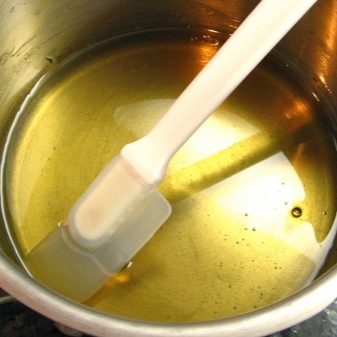
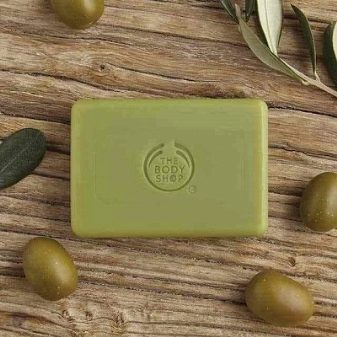
An interesting idea in soap making is soap balls for the bathroom. They are prepared in a cold way. In this case, the following ingredients are required:
- baking soda;
- lemon acid;
- starch (recommended to use corn);
- any essential oil that you like best;
- spray;
- special molds.
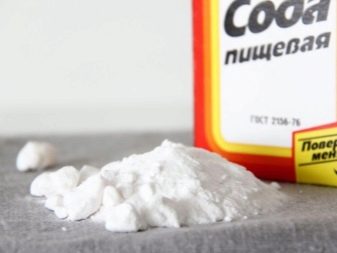
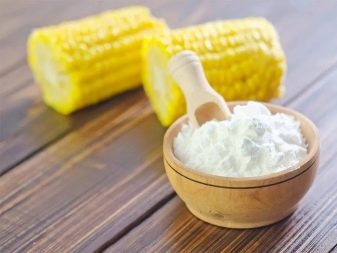
The procedure here will be as follows.
- Combine soda, acid and starch first. in pre-cooked enameled dishes. Mix all the ingredients.
- Run into sprayer selected essential oils. When mixing loose components, spray them with oil. The readiness of the composition should be checked with your finger - if the mixture began to stick, then you can safely proceed to the next cooking step.
- Pour into the resulting solution decorative elements or accessories: lemon slices, chopped zest, rose petals. Next, move the mass into special molds.
- Remove the mass in the refrigerator and leave there for 6 hours. After the specified time, carefully remove the soap balls from the molds, and then transfer to a cool place for about a day.
- Then remove the balls in a plastic bag and store in a cool place. These homemade balls should be put in the bathroom before collecting water.
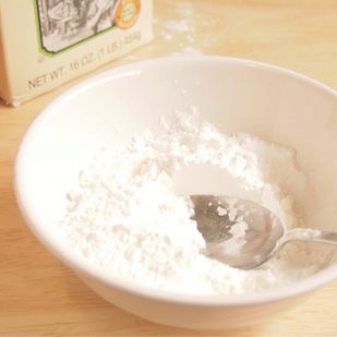
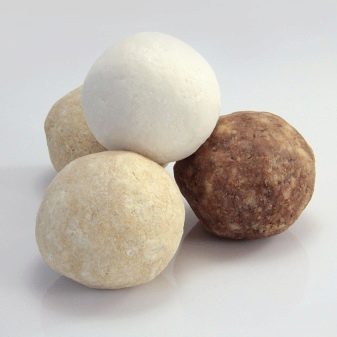
You can make a peach soap with rose petals. You will need:
- 200 g of baby soap;
- 1 tbsp. l peach ether;
- 5 drops of rose ester;
- pink or yellow dye;
- rose petals.
Prepare the product in this way.
- Share a baby soap into two halves: one will be larger and the other smaller.
- Beat these halves and add coloring components to them.
- Lay out the mass into the molds with a thin layer, put the rose petals on top, and then fill the second layer. Duplicate these steps until you fill the mold to the edge.
According to a similar recipe, you can make a beautiful curly lavender soap with your own hands, but here instead of rose petals you need to lay out small lavender twigs. The pigment should be a magenta color.


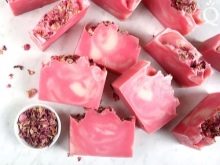
Useful Tips
Everyone can learn how to create such crafts at home.If you act correctly and follow the instructions, soap making will seem simple and interesting even for beginners. It is recommended to listen to some helpful tips.
- It is recommended to use home soap regularly to achieve maximum hydration and skin regeneration. Such products can be safely used to cleanse the body and face, especially if they are based on a gentle baby soap.
- Experts saythat the ideal mold for making homemade soap is thin and rectangular. Soap poured into such containers is much easier to remove and cut.
- Melted soap it is necessary to fill only with a thin stream and in a spiral, because voids are not formed in this way.
- Soap base It is recommended to heat to a temperature of 70 degrees so as not to “kill” all the beneficial properties of the natural ingredients present in home soap.
- Absolutely all work Soap adjustments should be carried out only after 2-5 minutes after the product has cooled, but still remained plastic.
- It is advisable to sprinkle the molds with alcohol first, so that later the soap was easier and more convenient to get out of them.
- If you want to store homemade soap over time, it is recommended to do this in cling film and in the refrigerator, but not in the freezer.
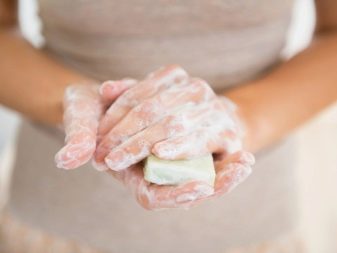
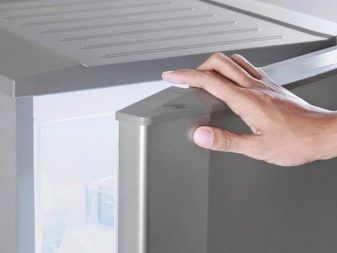
See how to make natural soap with your own hands in the next video.
